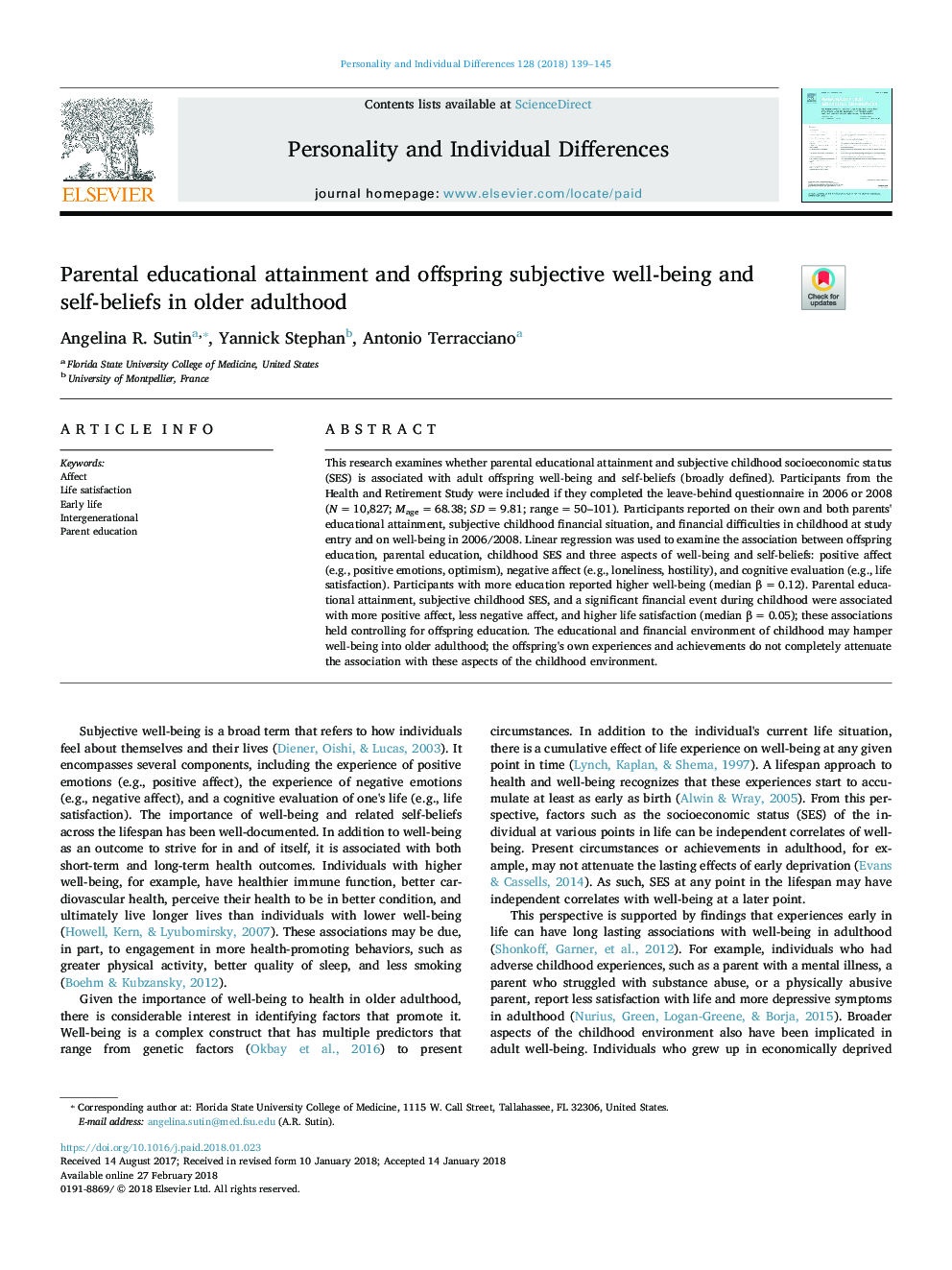| Article ID | Journal | Published Year | Pages | File Type |
|---|---|---|---|---|
| 7248837 | Personality and Individual Differences | 2018 | 7 Pages |
Abstract
This research examines whether parental educational attainment and subjective childhood socioeconomic status (SES) is associated with adult offspring well-being and self-beliefs (broadly defined). Participants from the Health and Retirement Study were included if they completed the leave-behind questionnaire in 2006 or 2008 (Nâ¯=â¯10,827; Mageâ¯=â¯68.38; SDâ¯=â¯9.81; rangeâ¯=â¯50-101). Participants reported on their own and both parents' educational attainment, subjective childhood financial situation, and financial difficulties in childhood at study entry and on well-being in 2006/2008. Linear regression was used to examine the association between offspring education, parental education, childhood SES and three aspects of well-being and self-beliefs: positive affect (e.g., positive emotions, optimism), negative affect (e.g., loneliness, hostility), and cognitive evaluation (e.g., life satisfaction). Participants with more education reported higher well-being (median βâ¯=â¯0.12). Parental educational attainment, subjective childhood SES, and a significant financial event during childhood were associated with more positive affect, less negative affect, and higher life satisfaction (median βâ¯=â¯0.05); these associations held controlling for offspring education. The educational and financial environment of childhood may hamper well-being into older adulthood; the offspring's own experiences and achievements do not completely attenuate the association with these aspects of the childhood environment.
Related Topics
Life Sciences
Neuroscience
Behavioral Neuroscience
Authors
Angelina R. Sutin, Yannick Stephan, Antonio Terracciano,
